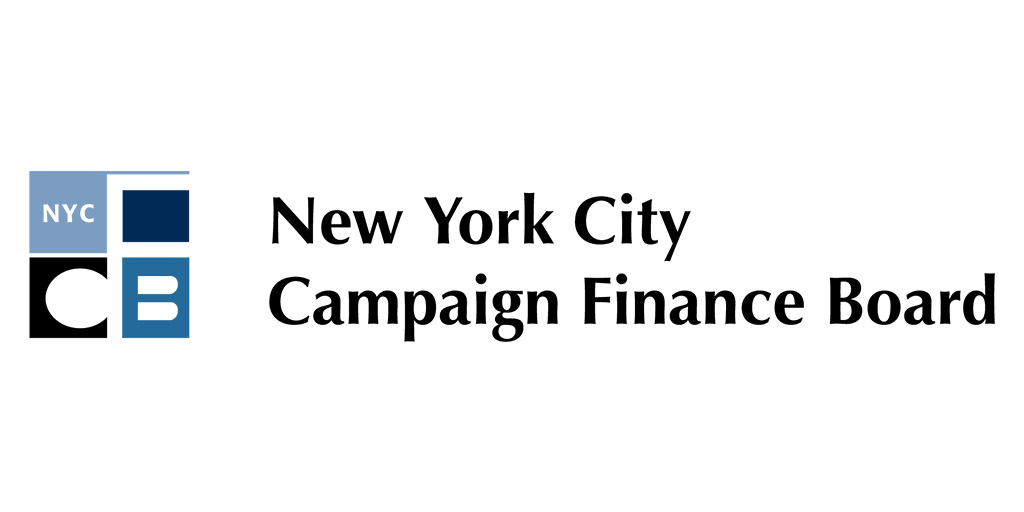On October 25, 2024, the Institute for Free Speech submitted comments to the New York City Campaign Finance Board expressing concern for the proposed rules.
Read a PDF of the comments here.
October 25, 2024
Mr. Joseph Gallagher
Interim General Counsel
Campaign Finance Board
Church Street Station, P.O. Box 3525
New York, NY 10008
Dear Mr. Gallagher:
On behalf of the Institute for Free Speech,1 I am writing to express our concern regarding the Campaign Finance Board’s Proposed Rules.
As an initial matter, the release and comment period for the proposed rules does not allow sufficient time to facilitate thoughtful engagement, particularly from the people and organizations likely to be most directly impacted.
The proposed regulations are not mere technical edits. They make several significant substantive changes to New York City’s campaign finance rules. Yet, they were published for public comment on August 28—just before a federal holiday and just over two months before the 2024 general election. As a result, the entire comment period fell during the height of the 2024 elections for president, Congress, and state legislature—a time when advocacy groups, the organizations most directly impacted by these regulatory changes—are understandably focused on making progress on their issues or for those groups endorsing candidates, winning races.
Appropriate consideration of the proposed rules requires additional input from those most impacted. Thus, we request that the Campaign Finance Board (CFB) extend the comment period and defer any decision on the proposed regulations until well after the 2024 general election, and political actors and their counsels can turn their attention to this matter and provide comments.
Taking additional time to seek further input on this matter would allow the Board to correct some of the flaws in the proposed rules. There are several significant flaws in the proposal’s current draft. For example, if taken literally, revisions to the definition of coordination would effectively eliminate independent expenditures. At the same time, the changes regarding spending by relatives reach beyond the CFB’s constitutional authority to regulate political speech.
I. As Written, the Proposal Virtually Prohibits Independent Expenditures.
The U.S. Supreme Court has held clearly that independent political speech must be protected,2 and local governments are not free to disregard the Court’s holding,3 no matter how sincerely they may disagree with it.4
In Colorado Republican Federal Campaign Committee v. FEC, the Supreme Court held that the government could not simply presume coordination – rather, coordination must be proven to exist in fact in order to be regulated.5 This is because these types of speech restrictions are only permissible to prevent quid pro quo corruption. But, if an organization is not coordinating its activity with a candidate or officeholder, the danger of that corruption doesn’t exist.
Although few courts have explored in detail exactly how much contact and discussion is needed to constitute “coordination,” they have insisted upon something considerably more than mere encouragement.6 This is because once an expenditure is found to be “coordinated,” it is severely restricted, thus directly burdening the organization’s speech and the right of those to hear the message.
One of the few federal courts to consider the standard in detail rejected the idea that mere knowledge of a campaign’s plans and strategies – what it termed an “insider trading” theory – was sufficient to find coordination. Instead, it found that “coordination” necessitated candidate control over the expenditures or, at a minimum, “substantial discussion or negotiation.” That meant the campaign and the spender had to discuss such things as the content, timing, location, means, or intended audience for the communication. According to the court, “coordination” could only be found where “the candidate and spender emerge as partners or joint venturers.”7
The plain text of the proposed rule disregards these basic principles. Read naturally, the proposal would effectively prohibit independent expenditures. Read any other way, the proposal is impermissibly vague because it fails to provide notice of what is regulated.
a. The Natural Reading of the Proposal Would Unconstitutionally Ban Independent Speech
Under the proposal, the sponsor of an independent expenditure is effectively presumed to be coordinating with a candidate if “the person or entity making the expenditure has utilized strategic information or data that … has been made publicly available by the candidate … [or various agents] in a manner which the candidate or such individual or entity knew or should have known would facilitate such utilization.”8
By its plain terms, the proposal means that virtually any publicly available information a candidate conveys about its campaign plans could be considered “strategic information,” creating a presumption that the expenditure is coordinated. For example, imagine that in a public Q&A session, a relatively unknown candidate is asked, “What makes you think you can win this race?” The candidate responds, “I think my background as a nonpartisan problem solver will be attractive to voters.” Can an organization that supports the candidate’s election make expenditures promoting him as a nonpartisan problem solver, or has the candidate revealed “strategic information?”
What about if a candidate’s campaign manager (an agent of the candidate) tells a local news outlet, “This race comes down to who can get their base voters to turn out.” Is that illegal coordination if an organization favoring that candidate then seeks to design ads that it thinks will appeal to what it perceives to be that candidate’s voter base?
Or if a candidate says, “If elected, I’ll tirelessly fight corruption and wasteful spending in the current administration.” Can supporters make public communications critical of allegations of corruption in the current administration? While these hypotheticals may seem absurd, they highlight the risks inherent in a poorly drafted regulation.
Moreover, even more directly relevant information—such as candidates’ advertising spending—creates serious overbreadth concerns. That is because candidates’ “planned expenditures” are typically a matter of public knowledge, and the media routinely reports on this subject. Of course, none of these news sources are clairvoyant. Presumably, they were apprised of the candidates’ planned expenditures by the candidates or their campaigns. Thus, any independent speaker who is informed by these publicly available reports would – in the language of the proposal – have “utilized strategic information or data that … has been made publicly available by the candidate.” The fact that reporters may obtain this information from broadcast stations’ “political files”9 also does not change the analysis since the information for the ad buys would still have had to originate from the candidate.
The result is that, given the sheer breadth of the proposed rule, independent speakers would have to hermetically isolate themselves from the rest of the world lest their speech be considered “coordinated” with a candidate. They could not use the internet, watch television, read a newspaper, listen to the radio, or talk to anyone. This is not and cannot be correct.
b. Any Alternative Reading is Impermissibly Vague and Would Chill Core First Amendment Speech
“Prolix laws chill speech for the same reason that vague laws chill speech: People ‘of common intelligence must necessarily guess at [the law’s] meaning and differ as to its application.’”10
If the language cannot be taken literally, what does it mean? Unfortunately, there are few guideposts to help. The Supreme Court has cautioned that “[t]he First Amendment does not permit laws that force speakers to retain a campaign finance attorney, conduct demographic marketing research, or seek declaratory rulings before discussing the most salient political issues of our day.”11 Yet, that is what a speaker would need to do, and probably without a clear answer, to parse out the meaning of the proposed rule.
If people of ordinary intelligence cannot even be confident that they can use public information to discuss candidates, how can they possibly know what they can and can’t say? The consequence is that the proposed rule would chill core political speech as organizations decide not to speak, lest, at best, they be forced to dedicate thousands of dollars and hours to defending themselves or, worse, are found liable. This chilling effect harms the public discourse and is not permitted under the First Amendment.
II. The Proposal Unjustifiably and Irrationally Discriminates Against Family Members.
The U.S. Supreme Court has repeatedly held that campaign contributions may be regulated only to the extent they “protect against corruption or the appearance of corruption.”12 Similarly, restrictions on direct speech may be regulated only to the extent they are rooted in a “substantial governmental interest in stemming the reality or appearance of corruption in the electoral process.”13 The proposed rule’s focus on familial relations is divorced from its core necessary anti- corruption purpose.
The CFB’s proposal would broadly prohibit independent expenditures through the following proposed new factors:
- the person or entity making the expenditure is, or has been established, financed, maintained, or controlled by, the candidate’s spouse, domestic partner, child, grandchild, parent, grandparent, aunt, uncle, or sibling, or the spouse, domestic partner, or child of such child, grandchild, parent, grandparent, aunt, uncle, or sibling; or
- the expenditure is made by an entity in which the candidate, or the candidate’s spouse, domestic partner, child, grandchild, parent, grandparent, aunt, uncle, or sibling, or the spouse, domestic partner, or child of such child, grandchild, parent, grandparent, aunt, uncle, or sibling, holds or has held an ownership interest of ten percent or more or a management position, including, but not limited to, being an officer, director, or trustee, during the same election cycle in which the expenditure is made.14
This proposal begs the question: Where is the corruption here? Are we really concerned about mothers and fathers corrupting their sons and daughters by supporting their children’s bid for elective office?15 This provision essentially bars family members from independently speaking in support of their loved ones, a policy subject to strict scrutiny and a poor statement of New York City’s view of the family or domestic partners. Absent some record that family members are more – not less – likely to enter into corrupt quid-pro-quo agreements with each other, this provision cannot possibly survive constitutional scrutiny.
If corruption is not the concern, then the only public policy rationale for this proposal seems to be to “level the playing field” so that certain candidates who may have greater family wealth do not have an “unfair” advantage over other candidates. Whatever one personally thinks of this public policy concern, the Supreme Court has made it absolutely and repeatedly clear that campaign finance laws aimed at “leveling the playing field” are unconstitutional.16
In addition, the proposed rule once again introduces impermissible vagueness and uncertainty. For example, what does it mean for the entity to have been “financed?” All of the funding, or a portion of it? How large must the portion be? If one of the listed persons gave $25 to an organization that spent $250,000 on independent expenditures, does that trigger coordination? This ambiguity once again serves to impermissibly chill political speech.
III. The Proposal Unwisely Expands the Definition of “Electioneering Communications” to Include Internet Communications
The proposed rule would add communications disseminated over the internet, as well as “communication that is delivered or served in any medium to specific individuals if 500 or more messages of a substantially similar nature are transmitted within any 30-day period,” to the definition of “electioneering communications.”17
The Federal Election Commission has taken a different approach. It recognized “the Internet as a unique and evolving mode of mass communication and [that] political speech that is distinct from other media in a manner that warrants a restrained regulatory approach.”18 This is because “[t]he Internet’s accessibility, low cost, and interactive features make it a popular choice for sending and receiving information” and “[u]nlike other forms of mass communication, the Internet has minimal barriers to entry, including its low cost and widespread accessibility.”19
In recognition of these unique characteristics, the FEC limited its regulation of internet activity to only content placed or promoted for a fee on another person’s website.20 The CFB should take a similar approach.
As written, the proposed rule risks leading to confusion and chilling political speech. The CFB advises speakers that it views costs incurred in the design and production of covered expenditures as part of the expenditure.21 But how would this rule apply to social media posts by advocacy organizations? For example, if an advocacy group wanted to tweet out its opposition to a vote taken 25 days before an election by an incumbent officeholder, would it need to calculate the value of staff time to write and post the tweet?
The result of such burdens is likely to be an effective blackout period on many social media issue communications by organizations within 30 days of an election. This would be deeply problematic. Worse, many smaller organizations would inadvertently violate such a rule.
The public, including policy organizations, should be free to publicly speak about such issues without worrying about running afoul of ill-tailored campaign finance regulations.
IV. Conclusion
The CFB should not rush through ill-thought-out rules at the height of a presidential election season. The proposed regulations have significant flaws and would benefit from additional input from regular political actors currently engaged in the electoral process. Accordingly, the CFB should decline to adopt the proposed rules at this time.
Respectfully submitted,
David Keating
President
1 The Institute for Free Speech is a nonpartisan, nonprofit 501(c)(3) organization that promotes and defends the First Amendment rights to freely speak, assemble, publish, and petition the government.
2 See, e.g., Citizens United v. Fed. Election Comm’n, 558 U.S. 310 (2010).
3 See Amer. Tradition Partnership v. Bullock, 132 S. Ct. 2490 (2012).
4 See, e.g., N.Y. Progress and Protection PAC v. Walsh, 17 F. Supp. 3d 319, 323 (S.D. N.Y. 2014) (“The Court has noted its concern; and many others have expressed similar concerns about the impact of the rulings in Citizens United and McCutcheon. The Court is bound, however, to follow the Supreme Court and Second Circuit’s clear guidance.”).
6 See e.g., Colo. Republican Fed. Campaign Comm. v. Fed. Election Comm’n, 518 U.S. 604, 621-22, 116 S. Ct. 2309, 2319 (1996) (“An agency’s simply calling an independent expenditure a ‘coordinated expenditure’ cannot (for constitutional purposes) make it one”).
7 Federal Election Commission v. Christian Coalition, 52 F. Supp.2d 45 (D.D.C. 1999) (“joint venturers” standard); see also Clifton v. Federal Election Commission, 114 F.3d 1309 (1st Cir. 1997) (standard finding “coordination” where there was “any” oral communication between spender and candidate was unconstitutionally overbroad). See generally Bradley A. Smith, Super PACs and the Role of “Coordination” in Campaign Finance Law, 49 Willamette L. Rev. 603, 621-626 (2013).
9 See 47 C.F.R. §§ 73.3526 and 73.3527.
10 Id. at 324 (quoting Connally v. General Constr. Co., 269 U.S. 385, 391 (1926)).
11 Citizens United, 558 U.S. at 324.
12 See, e.g., McCutcheon v. Fed. Election Comm’n, 134 S. Ct. 1434, 1441 (2014).
13 Citizens United, 558 U.S. at 313 (quoting Buckley v. Valeo, 424 U.S. 1, 47-48 (1976)).
14 Proposed § 6-04(a)(xii)-(xiii).
15 Although the Supreme Court upheld the contribution limits under the Federal Election Campaign Act as applied to candidates’ family members, the Court acknowledged that the potential for corruption is not as great in such contexts. See Buckley v. Valeo, 424 U.S. 1, 53 n.59 (1976). The provision at issue here, however, does not even pertain to direct contributions to candidates, but rather to independent expenditures, which the Supreme Court has held “do not lead to, or create the appearance of, quid pro quo corruption. In fact, there is only scant evidence that independent expenditures even ingratiate.” Citizens United v. FEC, 558 U.S. 310, 360 (2010).
16 See Buckley, 424 U.S. at 48-49 (invalidating the Federal Election Campaign Act’s limitations on the amount of political expenditures that individuals may make); Davis v. FEC, 554 U.S. 724 (2008) (invalidating the “Millionaire’s Amendment” under the Bipartisan Campaign Reform Act providing for increased contribution limits for candidates running against self-funding opponents); Citizens United, 558 U.S. at 350 (“The rule that political speech cannot be limited based on a speaker’s wealth is a necessary consequence of the premise that the First Amendment generally prohibits the suppression of political speech based on the speaker’s identity.”); Ariz. Free Enterprise Club’s Freedom PAC v. Bennett, 131 S. Ct. 2806, 2825 (2011) (“We have repeatedly rejected the argument that the government has a compelling state interest in ‘leveling the playing field’ that can justify undue burdens on political speech.”).
18 Federal Election Commission, Internet Communications, 71 Fed. Reg. 18589 (Apr. 12,2006) (“Internet Rulemaking”).
21 Independent Expenditures Guide at 2, https://www.nyccfb.info/independent-expenditures/independent- expenditures-guide/.














